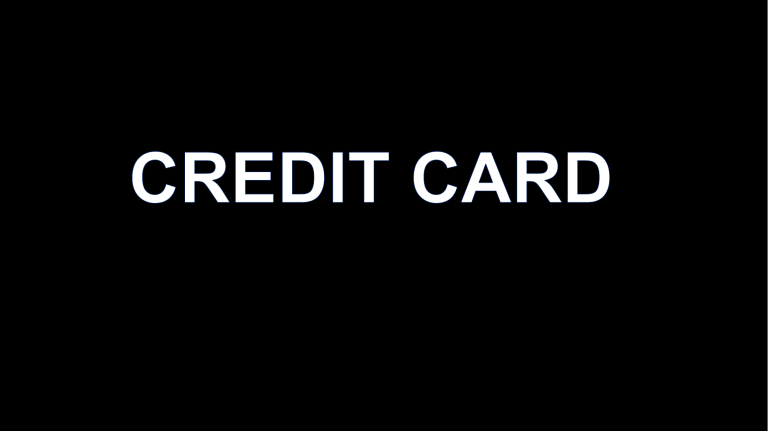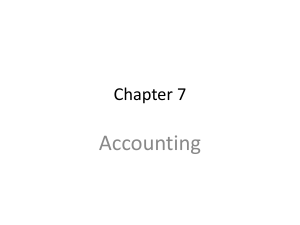Credit Card Processing & Online Payments: A Comprehensive Guide
advertisement

• Credit cards are issued to consumers by financial institutions, typically banks, and allows a card holder or their designee to borrow money for purchases and pay it back at a later date with interest. • Credit cards also include a line of credit that allows the card holder to borrow money in the form of a cash advance. Next slide: 2 13 Credit Card Processing • Credit card processing is a complex service involving multiple moving parts, emerging technologies payment networks, regulatory bodies and financial institutions. • Like any service involving that level of complexity, credit card processors often vary in quality. Next slide: 132 Processing Payment Card Online • Online payment processing refers to the exchange of money online as payment for goods or services ordered over the internet. • Can be done automatically by software packaged with electronic commerce software. Next slide: 231 Processing Payment Card Online Payment is done through through two types of cards: •Debit card •Credit card Next slide: 13 2 Debit Card Debit Card: EMV Chip Linked with the bank account so the money you spend is automatically deducted from your account. Next slide: 123 Credit Card • It allows you to use someone’s money to make purchase while you pay the money back later • Money should be paid in the billing period • Interest is allowed if not paid in time Next slide: 312 Debit Card Credit Card •It is issued by bank to its customers for making payment directly through account of customer on any purchase •It is issued by bank or any financial institution for making payment by the bank on behalf of customers’ on any purchase •It is a card to pay now •It is a card to pay later •No interest is charged •Interest is charged, if payment is not made within specified time period/billing period Working techniques of credit card Next slide: 312 Credit card works in three major stages • Payment Authorization: gives approval for the transaction that is stored with the order. • Payment Authentication: issuing bank receives the payment request and verifies whether the cardholder has available balance to make the purchase. • Settlement: sales are processed and funds are transferred from issuing bank to merchant’s account. Next slide: 21 3 How credit card transaction works: Next slide: 123 Benefits and limitations of Credit Card Benefits of Credit Card • Convenience • Spread out the cost • Go interest free • Cashback and rewards • Purchase protection • Boost your credit Next slide: 132 Limitations of Credit Card • Credit worthiness needed • Impulse buying • Debt issues • Credit score • Paperwork and homework • Credit card frauds Next slide: 213 Smart Card • Smart card is again similar to credit card or a debit card in appearance, but it has a small microprocessor chip embedded in it. • It has the capacity to store a customer’s workrelated and/or personal information. • Smart cards are also used to store money and the amount gets deducted after every transaction. Next slide: 312 Advantages of Smart Card • • • • • Gives security of information. Has more organized information. Transactions can happen off and on-line. Reduces fraud. Has the ability of on-site approval. Next slide: 23 1 Disadvantages of Smart Card •Fees applied with the use of a card. •Gives liability issues if stolen or lost. •Lack of technology to support users •Potentiality area for hackers and computer viruses. •Accuracy of information is small. Next slide: 3 12 Types of Card • Contact Cards • Contactless Cards Next slide: 132 Payer Authentication • It is security protocols developed by VISA and MASTERCARD that allows consumer to shop online more securely. • It is the validation that the online shopper is the cardholder. Next slide: 312 Features • Helps to minimize fraudulent transactions, • Manages upgrades and updates, as payer authentication program change, • Support or verified by VISA, MASTERCARD SecureCode, American Express SafeKey, Next slide: 321 Benefits • Easily implement and maintain payer authentication through a single connection, • Free and automatic platform upgrades, • Reduction in fraud screening cost, • Helps to minimize fraudulent transaction, 3 Next slide: 1 2 Electronic Payment Gateways • A payment gateway is a service that authorizes and processes debit/credit card payments for online merchants and traditional brick and mortar businesses. • A third party service that is actually a system of computer processes that process, verify and accepts or decline credit card transaction on behalf of merchant through secure internet connections. Next slide: 1 2 3 Payment Gateways in Nepal How EPG Works Most common Security Threats in E-commerce Environment 1. 2. 3. 4. 5. 6. 7. Malicious code Unwanted programs Phishing Hacking Fraud/Theft Denial of service Insider jobs Ending presentation in 312



